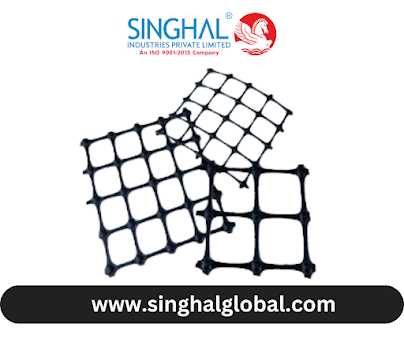The Ultimate Guide to Biodegradable Plastic Bags are Benefits, Types, and Key Players
In today's environmentally-conscious world, biodegradable plastic bags have emerged as a sustainable alternative to traditional plastic bags. But what exactly are Biodegradable poly bag manufacturers, and why should we care about them? This comprehensive guide delves into the world of biodegradable plastic bags, exploring their benefits, types, key market players, and much more.
What Are Biodegradable Plastic Bags?
Biodegradable plastic bags are designed to break down naturally over time when exposed to environmental conditions such as sunlight, moisture, and heat. Unlike conventional plastic bags, which can take hundreds of years to decompose, biodegradable bags aim to reduce their environmental footprint by decomposing into natural elements more quickly.
Why Are Biodegradable Bags Important?
The importance of biodegradable plastic bags lies in their potential to mitigate the environmental damage caused by traditional plastics. Conventional plastic bags contribute to pollution, wildlife harm, and landfill overflow. Biodegradable bags offer a promising solution by breaking down into harmless substances, thereby reducing their impact on the environment.
Benefits of Biodegradable Plastic Bags
Environmental Impact
Biodegradable plastic bags significantly reduce the environmental impact of plastic waste. Their ability to break down more quickly helps prevent long-term pollution and reduces the risk of wildlife ingesting harmful plastics.
Reduction in Pollution
By decomposing into natural elements, biodegradable bags help decrease the accumulation of plastic waste in landfills and oceans, contributing to cleaner and healthier ecosystems.
Decomposition Process
The decomposition process of biodegradable bags depends on the type of material used. For example, compostable bags break down in composting facilities, while oxo-biodegradable bags degrade faster when exposed to sunlight and heat.
Types of Biodegradable Plastic Bags
Compostable Bags
Compostable bags are made from natural materials like cornstarch or potato starch. They break down into compost when exposed to composting conditions, enriching the soil.
Oxo-Biodegradable Bags
Oxo-biodegradable bags contain additives that accelerate the breakdown of the plastic when exposed to sunlight. They are designed to fragment into smaller pieces, which then biodegrade over time.
Photo-Biodegradable Bags
Biodegradable plastic bag suppliers break down when exposed to UV light. They are often used in outdoor environments where sunlight can trigger the decomposition process.
Key Players in the Market
Top Biodegradable Poly Bag Manufacturers
Several key players in the market are known for their high-quality biodegradable poly bags. These manufacturers use innovative technologies and materials to produce bags that meet environmental standards.
Leading Bio Plastic Bag Exporters
Bio plastic bag exporters play a crucial role in distributing biodegradable bags globally. They ensure that these eco-friendly products reach markets around the world, contributing to global sustainability efforts.
Factors to Consider When Choosing Biodegradable Bags
Material Composition
The material composition of biodegradable bags affects their performance and decomposition rate. It’s essential to choose bags made from certified materials that meet environmental standards.
Certifications and Standards
Look for certifications like ASTM D6400 or EN 13432, which indicate that the bags meet specific biodegradable and compostable criteria.
Cost vs. Performance
While biodegradable bags might be slightly more expensive than traditional plastic bags, their benefits in terms of environmental impact often outweigh the cost.
How to Identify Quality Biodegradable Plastic Bags
Understanding Labels and Certifications
Quality biodegradable bags come with labels and certifications that verify their environmental claims. Understanding these labels helps ensure that you’re selecting products that genuinely meet biodegradable standards.
Performance in Different Environments
Evaluate how well biodegradable bags perform in various environments, such as landfills, composting facilities, and marine settings, to ensure they meet your needs.
Common Misconceptions About Biodegradable Plastic Bags
Biodegradable vs. Compostable
A common misconception is that all biodegradable bags are compostable. However, not all biodegradable bags break down in composting conditions. It’s important to understand the differences between these terms.
Longevity and Effectiveness
Another misconception is that biodegradable bags disappear completely within a short period. In reality, the decomposition time can vary based on environmental conditions and the type of biodegradable material used.
Trends and Innovations in Biodegradable Plastic Bags
New Materials and Technologies
The biodegradable plastic bag industry is continuously evolving, with new materials and technologies emerging. Innovations such as algae-based bags and advanced compostable materials are driving the market forward.
Future Outlook
The future of Bio plastic bag exporter looks promising as more businesses and consumers adopt eco-friendly practices. Ongoing research and development are expected to enhance the performance and sustainability of these products.
Conclusion
Biodegradable plastic bags offer a viable solution to the environmental issues caused by traditional plastics. By understanding their benefits, types, and key players, you can make informed choices that contribute to a healthier planet. As the market continues to evolve, staying updated on trends and innovations will help you make the best decisions for your needs.
FAQs
What Are the Main Differences Between Biodegradable and Compostable Bags?
Biodegradable bags break down into natural elements over time, while compostable bags break down into compost under specific conditions. Compostable bags often decompose faster and enrich the soil.
How Long Does It Take for Biodegradable Bags to Decompose?
The decomposition time for biodegradable bags varies based on the material and environmental conditions. Some may decompose within a few months, while others take longer.
Are Biodegradable Plastic Bags More Expensive?
Biodegradable plastic bags can be more expensive than traditional plastic bags. However, their environmental benefits often justify the higher cost.
Can Biodegradable Bags Be Recycled?
Most biodegradable bags are not recyclable with standard plastic recycling streams. They are designed to decompose rather than be recycled.
What Are the Best Practices for Using Biodegradable Plastic Bags?
To maximize the benefits of biodegradable bags, use them in environments where they can decompose effectively, and choose bags certified for composting or biodegradable standards.

.png)
Comments
Post a Comment